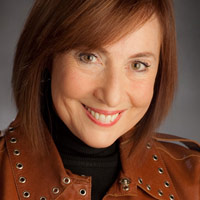Between 2007 and 2017, the Digital Media and Learning Competition program supported individuals, groups, programs, and institutions in the use and development of sound technologies that inspire learning and contribute to society. The Competition awarded over $13 million to more than 100 "connected learning" projects in some 20 countries. Over 350 grantees championed new forms of educational and civic engagement using games, mobile phone applications, virtual worlds, social networks, playlists for learning, and digital badge platforms.
The MacArthur Foundation supported the Digital Media and Learning (DML) Competition as part of its Digital Media and Learning initiative, which helped to marshal what was already known about the field of connected learning while seeding innovation. Grants supported research projects, design studies, pilot programs, and responses to policy implications. Infrastructure and administrative support for the Digital Media and Learning Competition was provided by HASTAC teams based at the University of California Humanities Research Institute and Duke University under the founding leadership of Cathy N. Davidson (1) and David Theo Goldberg (2). HASTAC is the Humanities, Arts, Science, and Technology Alliance and Collaboratory, a network of nearly 16,000 members dedicated to "Changing the Way We Teach and Learn." Founded in 2002, HASTAC, the world's first and oldest academic social network, insists: "Difference Is Our Operating System."
Cathy Davidson Discusses the Digital Media & Learning Competition (November, 2009)
Each year, the DML Competition focused on a different topic. Grantees were supported by the DML team through individual consultation and networking, group webinars, invitational winners' meetings, local workshops, and public conferences at which DML winners presented their work while meeting other researchers and practitioners. One HASTAC conference convened in Lima, Peru, in conjunction with the Organization of American States, showcased DML winners from around the world.
The results of the Competition are lasting, both in the continuing work of the winners and in larger social awareness of the benefits and problems of new technologies. For example, Badges for Lifelong Learning Competition – the fourth Digital Media and Learning Competition – led to reexamination of conventional ways of measuring outputs and proposed innovations to credentialing, assessment, pedagogy, curricula, evidence, and all the other ways that institutions recognize learning on their own campuses or within their own companies and organizations. One lasting product of the badging competition is What Counts as Learning: Open Digital Badges for New Opportunities by Sheryl Grant (3).
The DML Trust Challenge, announced in March 2015 at SXSWedu, championed safety and privacy in online learning environments. The Trust Challenge helped spur an international movement for a more careful, ethical treatment of data. In an open online world where data sharing can enhance learning opportunities, we also must be especially careful to protect privacy and ensure safety. How can learners exercise control over who sees and uses their data? What tools do they need to navigate, collaborate, and learn online with confidence? What solutions will foster greater civility and respect in online learning environments? How can open technical standards create more opportunities to share and collaborate online in a spirit of trust?
About the Digital Media & Learning Competition (February, 2015)
The Competition engaged numerous partners from the public and private sectors, including the White House Office of Science and Technology Policy, Mozilla, Facebook, Aspen Institute, Sony, Voto Latino, Family Online Safety Institute, Born This Way Foundation, Bill and Melinda Gates Foundation, Clinton Global Initiative, and an array of celebrities including Rosario Dawson and Lady Gaga. For an extensive list of projects and an evaluation of their impact, please see Awarding Innovation.
The DML winners have continued to contribute their ideas on behalf of a better society. Greg Niemeyer's crowdsourcing project Black Cloud, a winner in the 2008 Innovation and Knowledge Networking DML Competition, is now Aclima, a global company dedicated to environmental health and learning. L. Arthi Krishnaswami, a 2014 winner, has launched the Community Success Institute, building on the successes of the RyeCatcher platform, serving high-risk audiences and underserved populations. D.C. Vito, a winner in the 2015 DML Learning Pathways competition, is Executive Director of The LAMP, now leading a 22 Million by 2020 campaign to engage youth in the electoral process and enroll new voters.
Although the Competitions are over, we are proud of the ways DML winners continue to design and implement better systems, tools, and policies to promote ethical technologies for engaged learning and a more equitable world.
From 2007 to 2015, MacArthur awarded more than $18 million to the University of California, Irvine, to administer the Digital Media and Learning Competitions.
Related Content
News about the Digital Media and Learning Competition
Video: What is a Digital Badge? (June, 2013)




